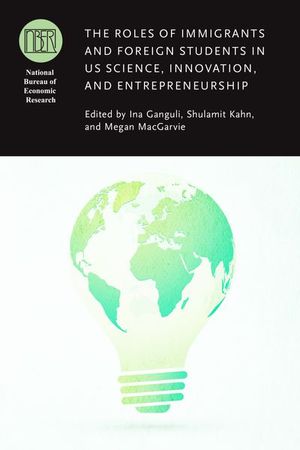The Roles of Immigrants and Foreign Students in US Science, Innovation, and Entrepreneurship
Published by The University of Chicago Press
The number of immigrants in the US science, technology, engineering, and mathematics (STEM) workforce and among recipients of advanced STEM degrees at US universities has increased in recent decades. In light of the current public debate about immigration, there is a need for evidence on the economic impacts of immigrants on the STEM workforce and on innovation. Using new data and state-of-the-art empirical methods, this volume examines various aspects of the relationships between immigration, innovation, and entrepreneurship, including the effects of changes in the number of immigrants and their skill composition on the rate of innovation; the relationship between high-skilled immigration and entrepreneurship; and the differences between immigrant and native entrepreneurs. It presents new evidence on the postgraduation migration patterns of STEM doctoral recipients, in particular the likelihood these graduates will return to their home country. This volume also examines the role of the US higher education system and of US visa policy in attracting foreign students for graduate study and retaining them after graduation.
BUY NOW FROM
COMMUNITY REVIEWS

